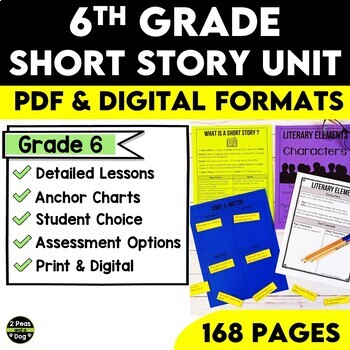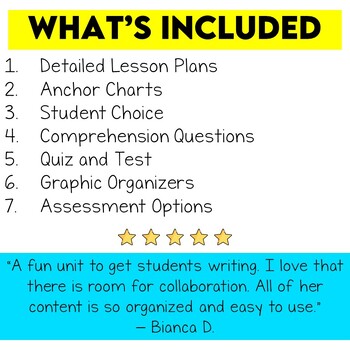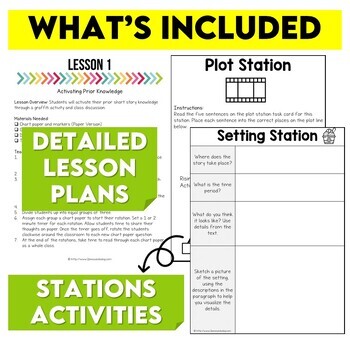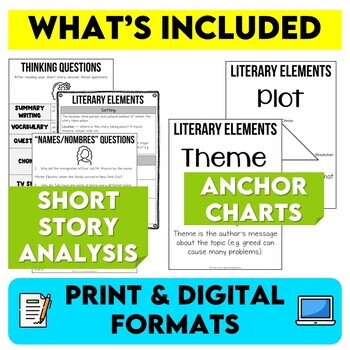6th Grade Short Story Unit - Reading Comprehension and Analysis
- Zip
- Google Apps™

What educators are saying
Description
Use this 6th Grade Short Story Unit to help your students learn about literary elements and literary devices (plot, character, setting, theme, conflict, similes, metaphors, symbols and foreshadowing). This differentiated short story unit focuses on 5 different short stories that will help your students reinforce key literacy concepts. Students will be encouraged to unleash their imagination and create their very own short stories at the end of this unit, fostering their creativity and honing their writing abilities.
Unit Includes
- 12 Lessons
- Detailed Teacher Instructions
- Lessons, Assignments, Rubrics
- Answer Keys
- Student Choice & Differentiation
- Anchor Charts
- Comprehension Questions
- Scaffolded Graphic Organizers
- Standards & Points-Based Assessments
- Group & Independent Work
- PDF & Google Slides™ Formats
Short Story Unit Outline
- Activating Prior Knowledge Graffiti Brainstorm
- What is a short story?
- Literary Elements Note
- Literary Elements Practice Stations
- Literary Elements Quiz
- Literary Devices Note
- Literary Devices Practice
- Literary Devices Quiz
- Short Story Group Work & Choice Board Project
- Short Story Application Task (Test)
- Write Your Own Short Story
- Short Story Sharing Café
5 Short Stories Covered
- "The Wish" by Roald Dahl
- "The Hockey Sweater" by Roch Carrier
- "Eleven" by Sandra Cisneros
- "The Beau Catcher" by Frederick Laing
- "Names/Nombres" by Julia Alvarez
Don't miss this opportunity to engage your 6th-grade ELA students in an enriching short story adventure that will ignite their imaginations, enhance their understanding of literary elements, and empower them as skilled storytellers.
Teacher Feedback
- “I'm so happy with everything I buy from this seller. This is thoughtfully put together and it helped immensely with my short story planning. Thanks!”
- “I was able to take this unit and use it right away. It follows the Ontario curriculum so well and even fit in with the grade 5 expectations (I have a split class). When we went online it was easy to take this unit and edit a few things to make it accessible online.”
- “I am currently using this resource online with my Grade 6 students. They are LOVING it. Thanks for another great product. I know I can never go wrong with this seller!”
Notes: Due to copyright laws, individual PDFs of each short story are not included. These short stories are available online and in many textbooks This resource is not editable.





